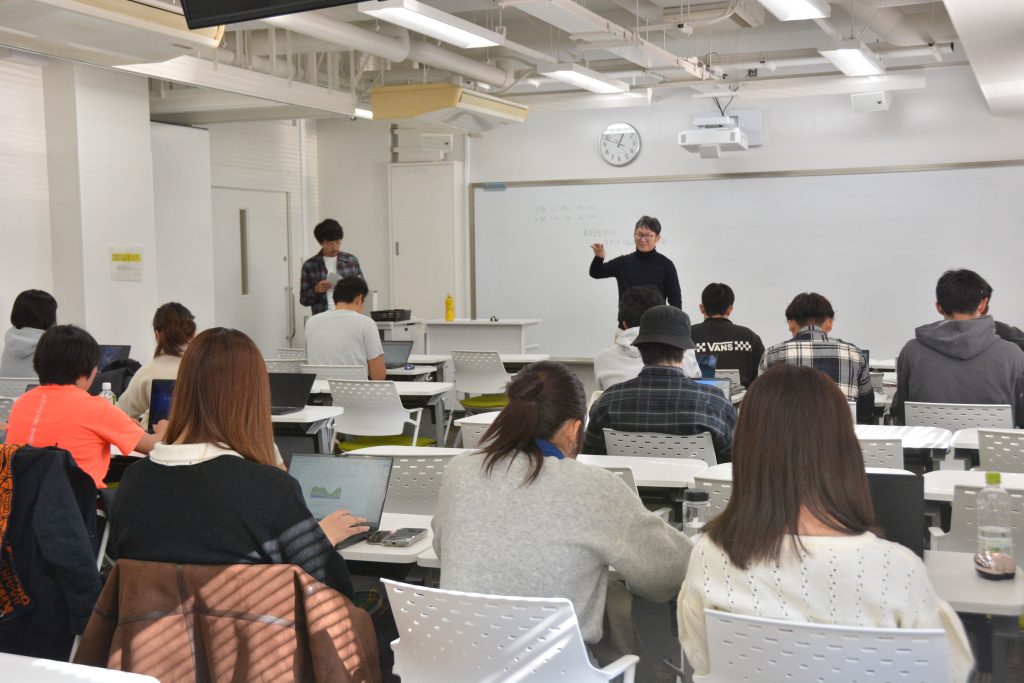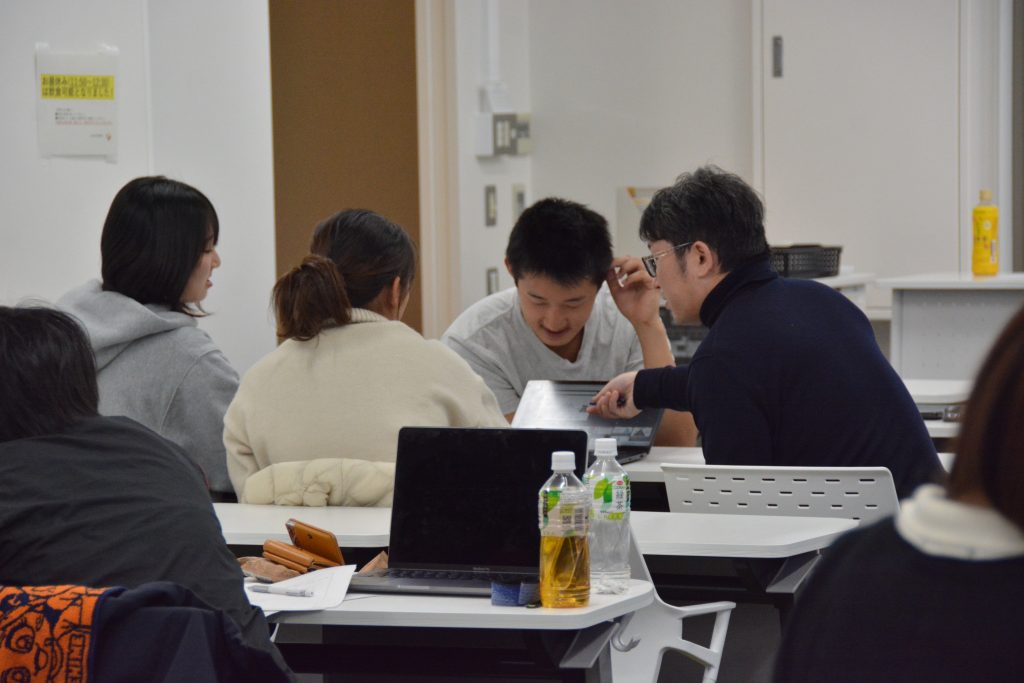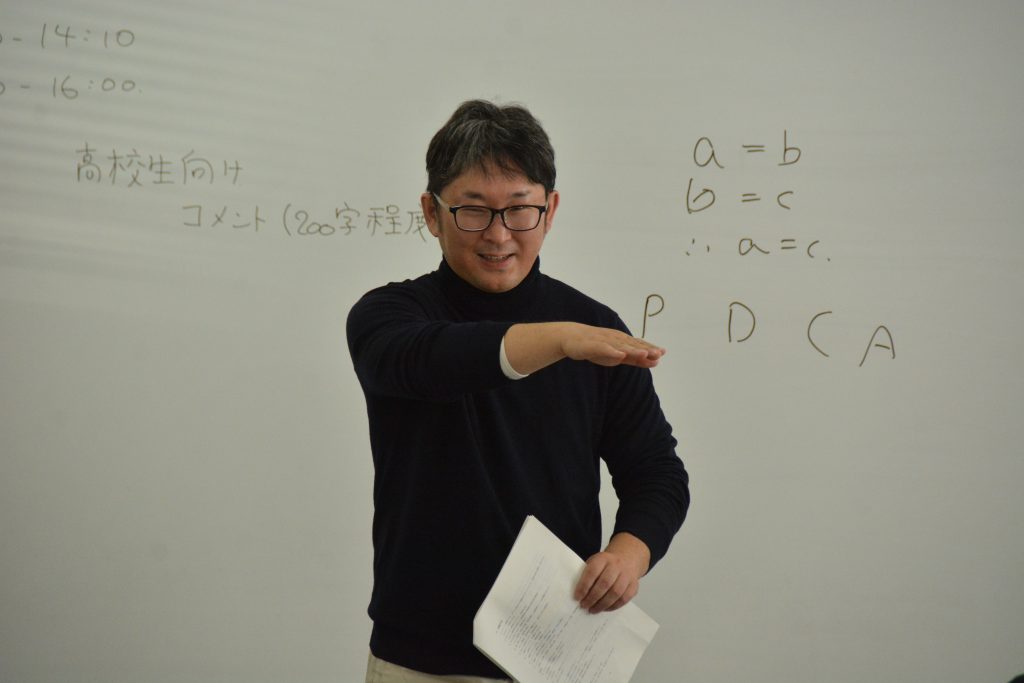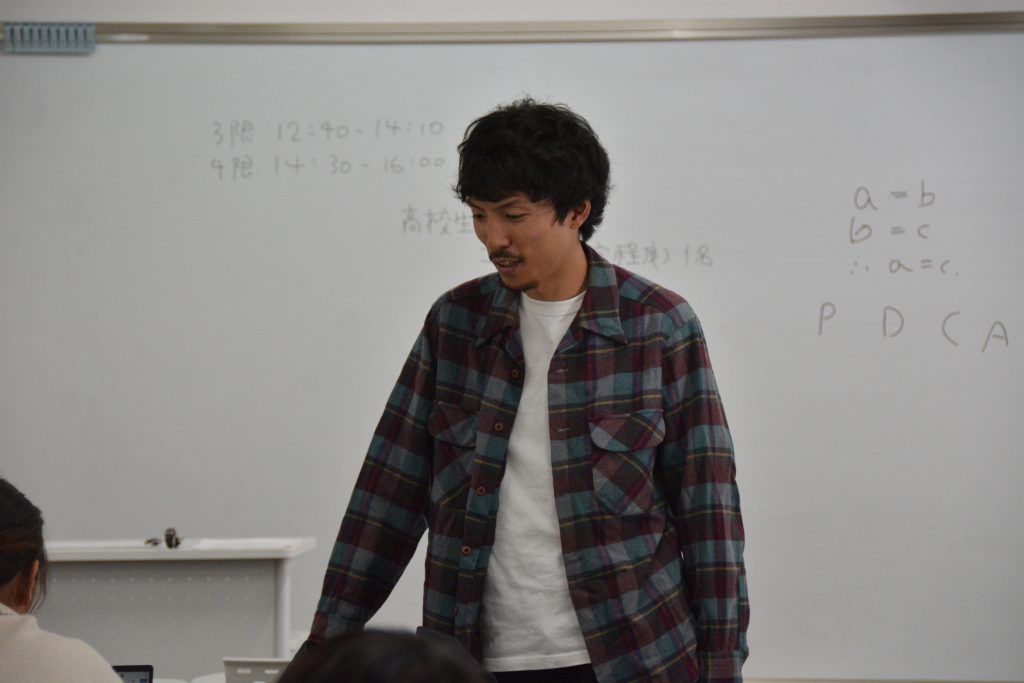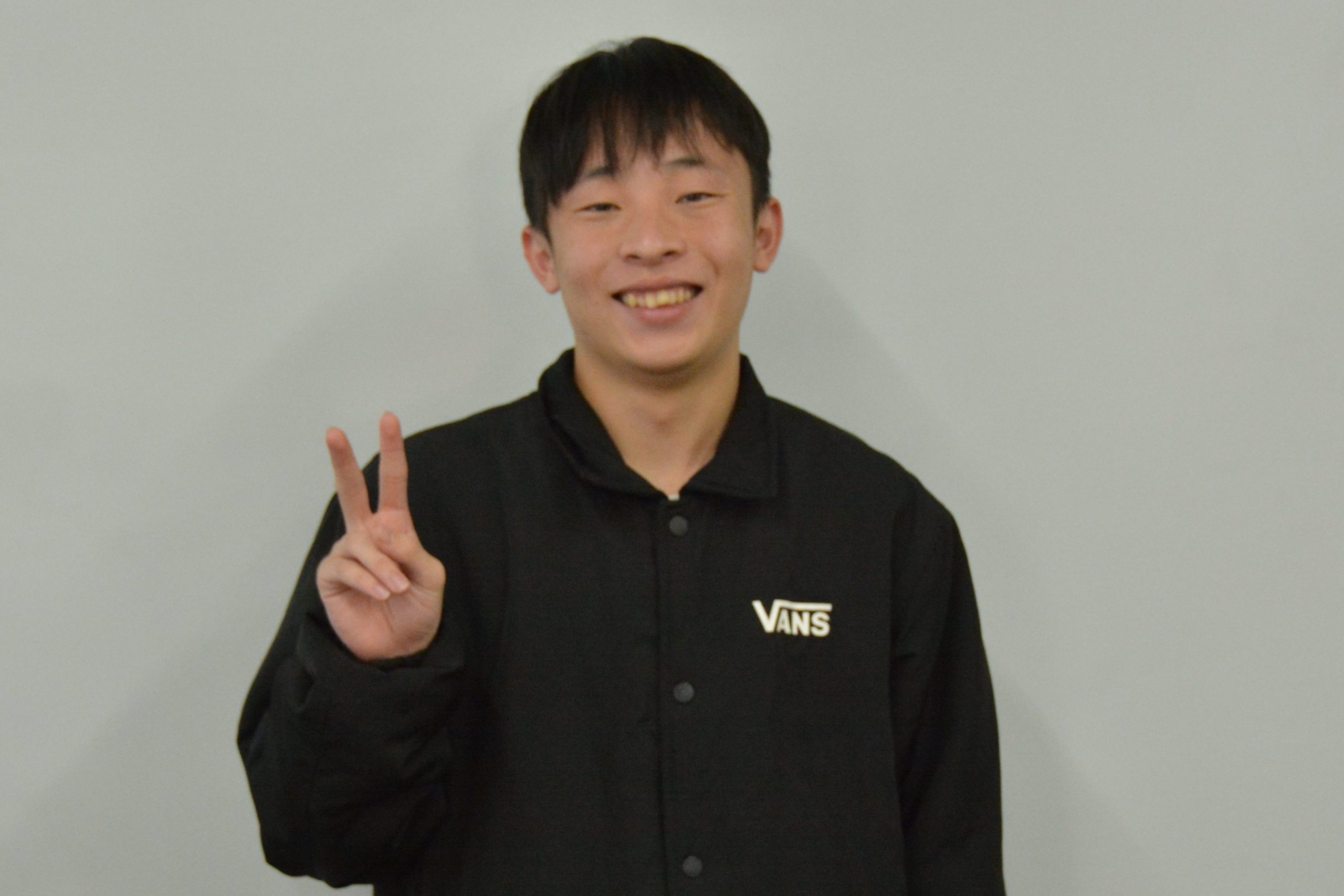Survey Exercise in Agriculture, Rural Areas and Fishing Villages
掲載内容は取材当時のものです。
The objective of this class is to develop the ability to objectively grasp the reality of things, including how to read and understand materials and maps, how to search for literature, and how to analyze data. Through classroom lectures and exercises, students will select the research method that best suits the information they need, and aim to acquire effective information acquisition, logical analysis, and easy-to-understand methods of expressing the results obtained from this analysis.
Lesson Content
The Department of Regional Resource Management in the Faculty of Collaborative Regional Innovation actively conducts surveys and research through long-term field training and fieldwork. In this class, students mainly learn the basics of conducting full-scale research activities, such as survey methods, how to analyze each piece of data, and how to write reports summarizing the results. This time, we visited the 11th and 12th classes to cover the lectures and exercises on “survey research.
The lecture part began with an overview of survey research. He explained, using specific examples, why it is necessary to conduct questionnaire surveys, what methods should be chosen to obtain the desired information, and to whom the surveys should be targeted. As an example, on the theme of “how to increase the take-home pay (sales price) of mandarin orange farmers,” the survey items necessary to understand the actual situation, to investigate the market, and to find out consumers’ needs were examined. After clarifying these items, it was explained that it would be necessary to select a full-scale implementation method and determine a schedule. Since many of the participants are second-year students who are about to start their research activities in earnest, they listened intently to the professor’s explanations, thinking about how they could apply the information to their own future research activities.
In the exercise part that followed, group work was conducted to actually conduct the survey. The students made hypotheses about the issues they were interested in, such as “Where would the younger generation like to live? Some of the groups had trouble deciding on a theme, but they were able to work on the survey in a friendly atmosphere while receiving sound advice from the instructors. Thanks to the content of the lecture and other lessons learned thus far, all groups were able to proceed very smoothly from the time they decided on a theme to the time they actually created the questionnaires.
I felt that the class was a place where students could learn a lot of very important content for their research activities at the university, not to mention the questionnaire survey that we covered this time. The distance between the professors and students was close, and I felt a sense of friendliness.
Comments from faculty
Today, there are more issues (problems) surrounding local communities than ever before, and they are not limited to rural, fishing, and mountain villages. Globally, these issues include climate change (global warming), economic globalization, and disparities. In Japan, the issues include a declining population, an aging population with fewer children, the concentration of people in Tokyo, and the ever-increasing damage caused by birds and animals in farming and mountain villages. Familiar examples to students include “dependence on foreign countries for food” and “plummeting rice prices (rice price). You may be thinking, “What’s the problem with that?” You may be thinking, “What is the problem with that? In this lecture, we aim to objectively analyze and think about various statistical data, literature survey (search methods), and questionnaire survey methods through exercises.
For example, we examine themes such as the relationship between ice cream sales and temperature (1st session), the possibility of kitchen cars (7th-8th sessions), and where vegetables in Matsuyama City come from (9th-10th sessions) by analyzing statistical data. By “investigating” and “researching” questions and “objectively communicating” them, the students develop the ability to think theoretically about not only graduation research papers but also familiar questions (isn’t this strange?). We are cultivating the ability to think theoretically about familiar questions (Isn’t this strange?) as well as graduation research papers. Why don’t you learn how to understand issues (problems) and solve mysteries?
Comments from students
Tenichiro Taguchi, 2nd Year Student, Department of Regional Resource Management, Faculty of Collaborative Regional Innovation
In this “rural survey exercise” lecture, students will learn methods related to surveys, analysis, and report writing. A distinctive feature of the curriculum at the Faculty of Collaborative Regional Innovation is that students are often required to actually go out into the field to conduct surveys. In this course, students can practice everything from problem-setting to surveying and reporting, and acquire the skills and knowledge needed to conduct surveys. Students will also have the opportunity to prepare a survey questionnaire, conduct a survey based on the questionnaire, and then present the results of the survey. This is one of the attractive points of this course.


